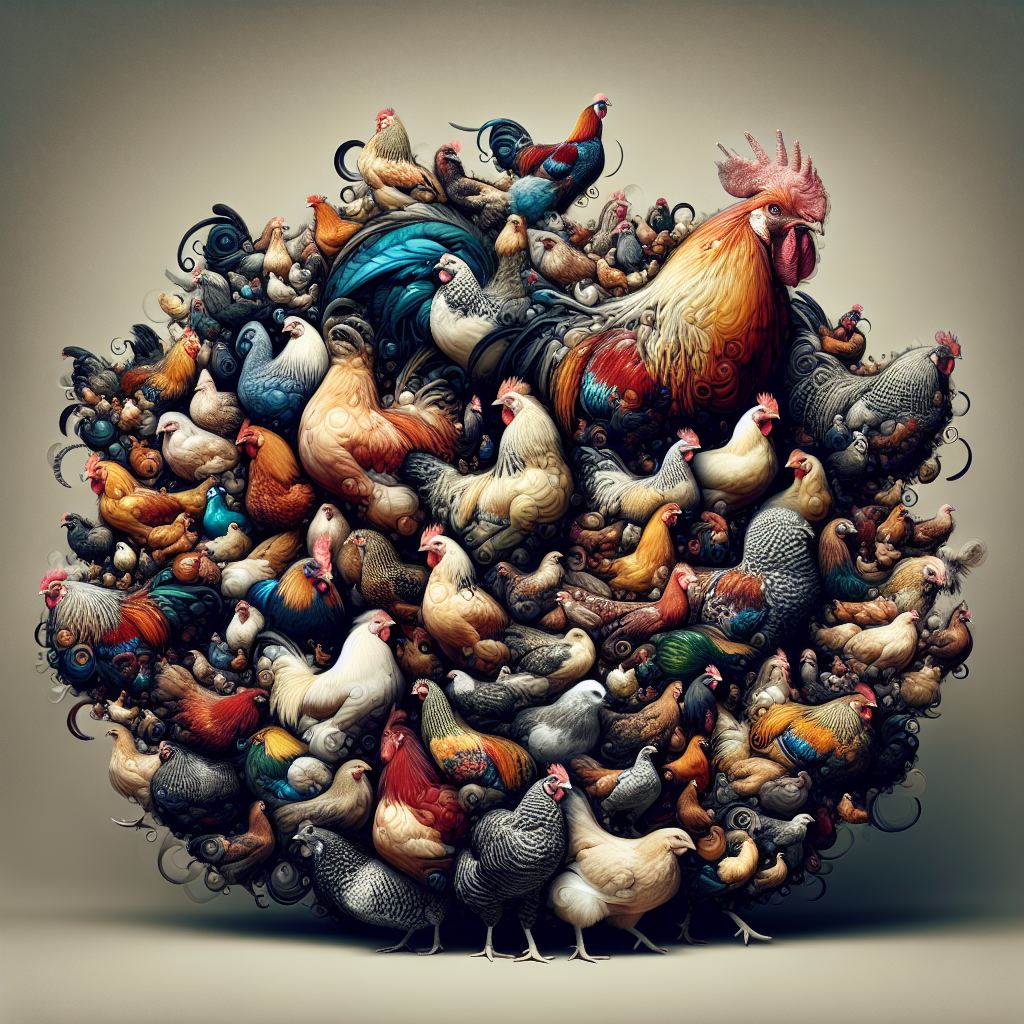In the world of poultry farming, flock size can greatly impact the success and efficiency of your operation. But have you ever wondered if certain breeds of birds are better suited for larger flock sizes? Well, wonder no more! In this article, we will explore whether there are specific breeds that thrive in larger flocks, and discover how their unique characteristics contribute to their suitability. So, whether you’re a seasoned farmer or just starting out, read on to find out which feathered friends might be the perfect fit for your expanding flock!
Factors to Consider for Larger Flock Sizes
When considering expanding your flock size, there are several important factors that you should take into consideration. These factors will play a crucial role in the success and management of your larger flock. By carefully evaluating these factors, you can ensure that you are well-prepared for the challenges and reap the benefits of a larger flock.
Breeding requirements
One of the key factors to consider when expanding your flock size is the breeding requirements of the chosen breed. Different breeds may have different breeding characteristics and requirements. Some breeds may require more intensive breeding management, such as controlled breeding seasons or artificial insemination. It’s important to choose a breed that aligns with your goals and resources in terms of breeding requirements.
Space utilization
The amount of space available for your flock is another important factor to consider when expanding. Larger flock sizes will naturally require more space to accommodate the increased number of animals. It is crucial to assess your existing space and determine if it can efficiently accommodate the larger flock size. Additionally, consider if you have access to expansion options if needed. Proper space utilization is vital for the well-being and overall health of your flock.
Feeding management
Feeding management is essential when it comes to larger flock sizes. As the number of animals increases, so does the amount of feed required. You will need to ensure that you have adequate resources to provide high-quality feed to meet the nutritional needs of your flock. It is also important to have a feeding plan in place to prevent overcrowding at feeding stations and ensure that all animals have equal access to feed. Proper feeding management is crucial for the health and productivity of your flock.
Growth rate
The growth rate of the chosen breed is another consideration when expanding your flock size. Some breeds may have a faster growth rate compared to others, which can be advantageous when aiming for higher productivity. Consider the market demand and the desired age at which you want your animals to reach maturity. Choosing a breed with an appropriate growth rate will enable you to optimize your flock’s productivity and profitability.
Benefits of Larger Flock Sizes
Expanding your flock size can bring about several benefits that can positively impact your farming operation. Let’s take a closer look at some of these benefits:
Economies of scale
One significant advantage of larger flock sizes is the potential for economies of scale. With more animals, you can benefit from lower per-unit costs for supplies, such as feed, medications, and equipment. By spreading fixed costs over a larger number of animals, you can potentially increase your overall profitability. Additionally, economies of scale can lead to increased bargaining power with suppliers, allowing you to negotiate better deals and prices.
Flock dynamics
Larger flock sizes can have a positive impact on flock dynamics. With a larger number of animals, there is increased social interaction among the flock members. This can lead to healthier and more natural behaviors, such as increased exercise and play. Furthermore, larger flocks encourage flock cohesion and hierarchy, promoting a sense of community and reducing instances of aggression or stress among the animals.
Increased productivity
Expanding your flock size can ultimately result in increased productivity. With more animals, you have the potential to produce more offspring, which can translate into higher yields and profits. A larger flock size can also provide you with a broader gene pool, allowing for better selection and breeding options. Additionally, larger flocks can lead to improved genetic diversity, which can enhance disease resistance and overall flock resilience.
Breeds Suitable for Larger Flock Sizes
When considering which breed to choose for a larger flock size, it is important to select breeds that are well-suited to the specific challenges and demands of managing a larger flock. Here are a few breeds that are known for their adaptability to larger flock sizes:
Merino Breed
Description
The Merino breed is known for its fine wool production. These sheep have a distinctive wrinkled skin and a dense, soft fleece. They were originally bred in Spain and have been widely used around the world for their high-quality wool.
Characteristics
Merino sheep are highly adaptable and can thrive in various climates and environments. They have excellent wool production capabilities, yielding a high quantity of fine fleece. Their docile nature and ability to graze efficiently make them suitable for larger flock sizes, as they are easy to handle and manage.
Adaptability to larger flock sizes
Merino sheep’s adaptability and their ability to graze efficiently make them well-suited for larger flock sizes. With their high wool production capabilities and docile temperament, they are a popular choice among farmers looking to expand their flocks.
Dorper Breed
Description
The Dorper breed originated in South Africa and is a crossbreed between the Dorset Horn and the Blackhead Persian. These sheep are known for their meat production and resilience in various climates.
Characteristics
Dorper sheep have a compact body with a thick, fat covering, making them excellent meat producers. They have excellent growth rates and adapt well to different environmental conditions. Dorper sheep are also known for their strong maternal instincts and good mothering abilities.
Adaptability to larger flock sizes
Dorper sheep’s excellent growth rates and adaptability make them well-suited for larger flock sizes. Their ability to thrive in different environments and their strong mothering instincts make them relatively easy to manage in larger flocks.
Suffolk Breed
Description
The Suffolk breed originated in England and is known for its meat production qualities. These sheep have a muscular build and a black face and legs, which sets them apart from other breeds.
Characteristics
Suffolk sheep are renowned for their fast growth rates and excellent carcass quality. They have a high feed conversion efficiency, which makes them economical to raise. Suffolk sheep also have a calm and docile temperament, making them easy to handle and manage.
Adaptability to larger flock sizes
Suffolk sheep’s fast growth rates and calm temperament make them well-suited for larger flock sizes. Their efficient feed conversion and excellent carcass quality contribute to their popularity among farmers looking to expand their flocks.
Cotswold Breed
Description
The Cotswold breed originated in the Cotswold hills of England and is known for its long, lustrous wool. These sheep have distinctively large frames and a docile temperament.
Characteristics
Cotswold sheep are recognized for their long wool, which is prized for its lustrous appearance and softness. They are larger-framed sheep with a calm disposition, making them easy to handle. Cotswold sheep also have good foraging abilities and adapt well to various management systems.
Adaptability to larger flock sizes
Cotswold sheep’s large frames, long wool, and adaptability to various management systems make them suitable for larger flock sizes. Their docile temperament and good foraging abilities contribute to their feasibility in managing a larger flock.
Conclusion
Expanding your flock size can be a rewarding endeavor, but it requires careful consideration of various factors. By evaluating breeding requirements, space utilization, feeding management, and growth rates, you can make informed decisions to ensure the success of your larger flock. Additionally, choosing breeds like Merino, Dorper, Suffolk, and Cotswold, which are known for their adaptability to larger flock sizes, can further enhance the viability and productivity of your expanded operation. With proper planning and management, larger flock sizes can offer economies of scale, improved flock dynamics, and increased productivity, ultimately leading to a successful and profitable farming venture.




